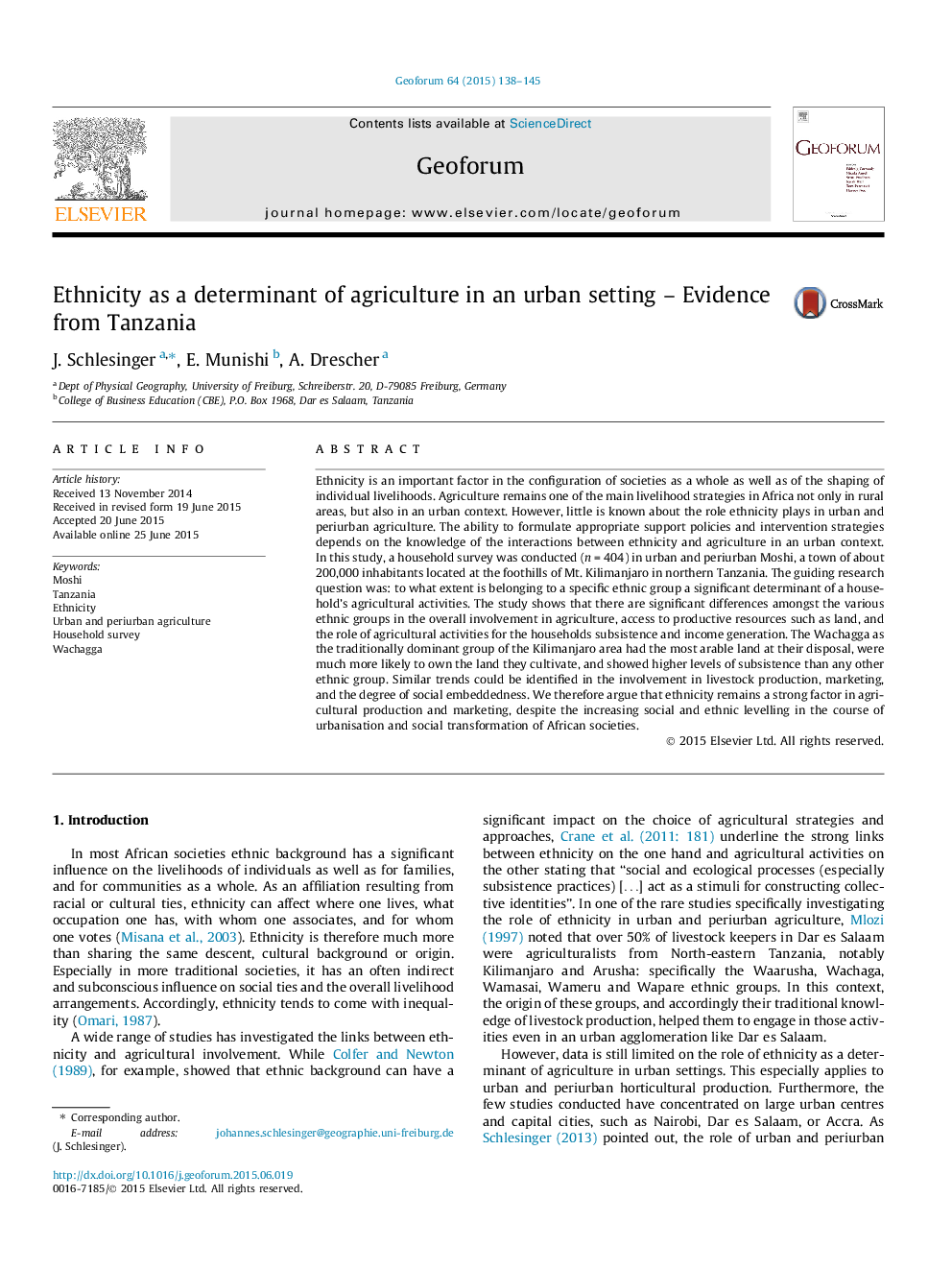| Article ID | Journal | Published Year | Pages | File Type |
|---|---|---|---|---|
| 5073677 | Geoforum | 2015 | 8 Pages |
â¢Ethnic association is a major determinant of involvement in agriculture.â¢Wachagga have much better access to productive resources than other ethnic groups.â¢Land ownership regimes in the urban area of Moshi remain dominated by traditional norms and agreements.â¢Social embeddedness remains important in the course of urban growth.
Ethnicity is an important factor in the configuration of societies as a whole as well as of the shaping of individual livelihoods. Agriculture remains one of the main livelihood strategies in Africa not only in rural areas, but also in an urban context. However, little is known about the role ethnicity plays in urban and periurban agriculture. The ability to formulate appropriate support policies and intervention strategies depends on the knowledge of the interactions between ethnicity and agriculture in an urban context. In this study, a household survey was conducted (n = 404) in urban and periurban Moshi, a town of about 200,000 inhabitants located at the foothills of Mt. Kilimanjaro in northern Tanzania. The guiding research question was: to what extent is belonging to a specific ethnic group a significant determinant of a household's agricultural activities. The study shows that there are significant differences amongst the various ethnic groups in the overall involvement in agriculture, access to productive resources such as land, and the role of agricultural activities for the households subsistence and income generation. The Wachagga as the traditionally dominant group of the Kilimanjaro area had the most arable land at their disposal, were much more likely to own the land they cultivate, and showed higher levels of subsistence than any other ethnic group. Similar trends could be identified in the involvement in livestock production, marketing, and the degree of social embeddedness. We therefore argue that ethnicity remains a strong factor in agricultural production and marketing, despite the increasing social and ethnic levelling in the course of urbanisation and social transformation of African societies.
